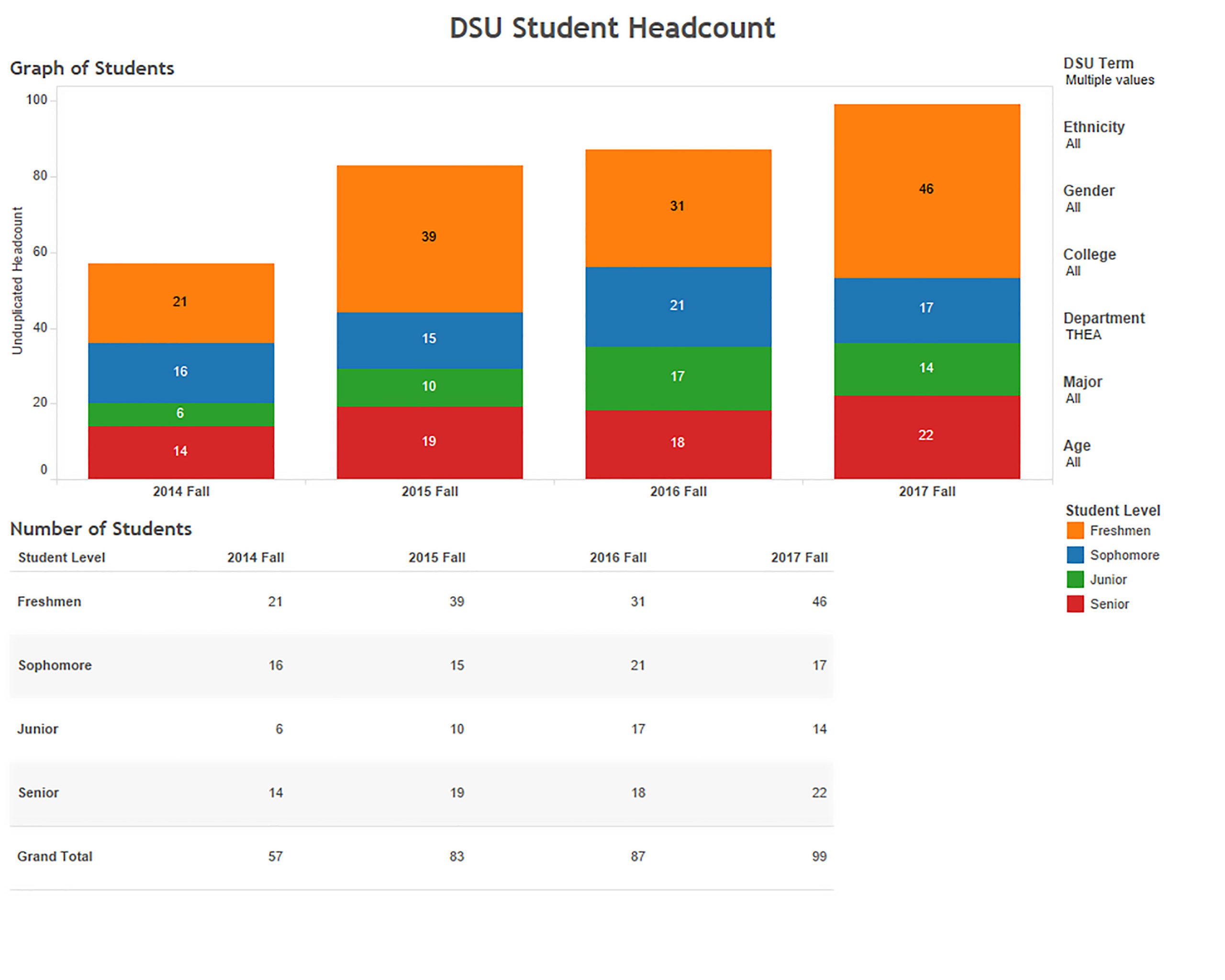The theater department is going strong despite many changes the department has gone through as Dixie State University continues to grow.
From Two Year Program to Four Year Program
As DSU has transitioned from a two-year college to a four-year college and then a state university, the theater department has changed as well.
“That was a really fast transition, just for the institution as a whole, and the theater department was not immune to some of the challenges of trying to keep up with that change,” department chair Michael Harding said.
Harding said when DSU was just a two-year college, the theater department did not involve professional development. Students could learn a little about lighting and acting and everyone had an opportunity to be in a production, but it was just a sampling of what theater is.
“We changed to four-year and we had even more time to devote, then university … that’s when the big questions started happening into the transitions we are making now,” Harding said.
Jeffery Jarvis, dean of the college of the arts, said the theater department is 10 years old and has gone through continual change in that time along with the changes the entire school has gone through.
Jarvis said: “A couple of years ago we brought in a faculty member in theater history, which we had never had … When we did that we changed a dynamic in the theater program.”
Shifting Focus
Adding classes and expanding the department to match the growth of DSU has caused the theater department to shift its focus.
Jarvis said the theater department had primarily focused on productions and when they added a class in theater history, it brought an academic perspective of theater to the department instead of just a perspective of practicing theater.
“There’s a lot of friction that’s necessary in any program that’s building as to what it should be, specially one that’s grown this much.” Harding said. “There’s a difference between conservatory and liberal arts and also preparatory program.”
Harding said a preparatory, or polytechnical program, is more hands on and practical where the focus is to put productions up. A university is more about studying theater and not so focused on the practical application.
Currently the department is deciding between being a preparatory, poly-technical, or university program and not a conservatory, Harding said.
The Juilliard School in New York City is an example of what a conservatory is. According to their website at www.juilliard.edu, the programs at the school are specifically designed for an in depth artistic education for gifted students in music, dance and acting, and each student appears in over 700 performances every year.
“We aren’t going to focus so much on the big productions, but more so on small projects that are part of the academic exploration,” Harding said.
Harding said, in a program where the focus is more on large productions, students spend each semester focusing on a single aspect of theater — only lighting, only acting, only costumes — which is a problem because it takes away from the exploration they receive with smaller projects.
The Effect on Students
Patrick Weeks, a sophomore theater major from Las Vegas, said, “[Faculty] have started doing meetings with theater majors to assess where they want to go in the theater profession and what their aspiration are.”
Weeks said the faculty helps students with those goals by recommending the classes that will help them obtain their goals.
“I think they really want to see [students] succeed in what they want to do,” Weeks said.
Retention is the biggest concern of the faculty and administration, and they are dedicated to ensuring students who are at DSU now will still be in school next fall.
Jarvis said: “We have ramped up advising in the college [of arts]. We are trying to connect advisers more quickly to students and make those advisers available to help students navigate.”
Harding said enrollment has not changed too much because of the changes and the addition of the film program has increased interest in the program due to students wanting to increase their skill in acting for stage and on camera.
“Theater has been growing pretty steadily,” Jarvis said. “The fall numbers [are] up from last year and last year’s numbers were up from the year before.”
Faculty and students are working toward a theater department that will continue to grow and improve as more opportunities become available and the department decides what their primary focus will be in the semesters to come.




